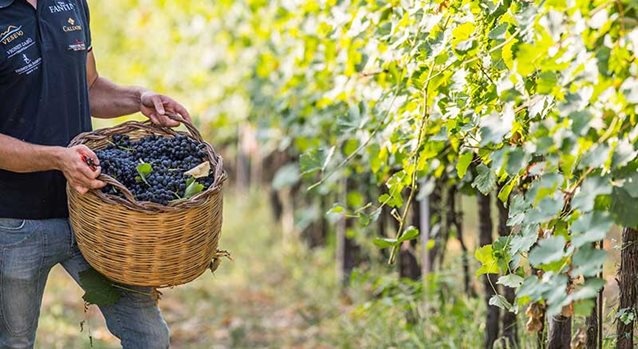The April 6 issue of Axios’ daily dealmakers newsletter called Platinum Equity’s acquisition of Farnese Vini the day’s most notable transaction.
What set Farnese apart?
Business editor Dan Primack wrote: “Because the deal actually closed, despite everything that’s happened in the U.S. and Italy since it was agreed to in December.”
Bankers from New York to Milan had questions.
How did the firm close the deal with much of the world shut down?
Why do it given everything that changed between sign and close?
Louis Samson, a partner at Platinum Equity and member of the firm’s Investment Committee, shed some light.
“We’d been preparing to face a recession for the past few years and our approach to portfolio construction had already become more defensive, with an increased emphasis on risk mitigation, diversification, and assets that are less correlated to market cycles,” Mr. Samson said. “Farnese checked all those boxes, which gave us great comfort proceeding in spite of everything going on.”

“We’d been preparing to face a recession for the past few years and our approach to portfolio construction had already become more defensive, with an increased emphasis on risk mitigation, diversification, and assets that are less correlated to market cycles,” Mr. Samson said. “Farnese checked all those boxes, which gave us great comfort proceeding in spite of everything going on.”

The wine industry is historically resistant to economic downturns and Farnese’s business model provides strong downside protection, a cornerstone of Platinum Equity’s investment strategy.
The deal team had also developed a solid relationship with Farnese co-founder Valentino Sciotti, who retains a minority stake, and felt comfortable he could steer the company through a protracted downturn.
But the main reason was even simpler: Platinum had to keep its word.
“It was the right thing to do,” said Filippo Rossi, a Platinum Equity vice president based in London who works on the firm’s Small Cap team that executed the transaction. “There could have been ways of delaying it, which would have been the easy way out, but we decided to stick to the agreement.
“We also managed to close on the agreed upon date, which no one was expecting.”
The genesis of a deal
Headquartered in Pescara, Italy, Farnese markets and distributes wines from southern and central Italy. The company acquires grapes from local farmers, oversees production and markets wines under specialty labels to customers internationally.
Founded in 1994, Farnese produces more than 24 million bottles and reported revenue of $81 million U.S. dollars in 2019. Farnese wines are well-received, having won many awards. The distributor’s portfolio includes 21 winemakers.
Farnese buys raw material (mostly bulk wine, some grapes) at low cost in central/southern Italy where there is structural excess grape production, converts to attractive bottled wines and sells abroad via an effective marketing and distribution machine. This optimizes the perceived quality/price ratio for customers.
The company’s business model attracted multiple bidders.
“The secret sauce of this company is that (co-founder Sciotti) found a very good business model and he’s been very good at creating very strong relationships with the grape growers in different regions of Italy – a lot of them in the south,” said Fernando Goni, a Platinum Equity principal on the Small Cap team in London. “So he gives the suppliers a lot of security and that allows him to develop quality wine for a good price.”
Platinum was invited to bid on the company in October, which was later in the process when compared to other prospective buyers.
The good relationship with Sciotti helped. The potential to open the U.S. market to the product was another factor.
But what really helped Platinum stand out was the deal team’s small cap focus and understanding of the lower middle market, backed by the resources of a much larger global firm.
The deal then moved quickly and an announcement of a definitive agreement came Jan. 10.
COVID-19 challenges
Italy confirmed its first COVID-19 case on Jan. 31.
By the beginning of March, the highly infectious disease had spread to all regions of the country.
This was the backdrop as the Small Cap team moved to close the deal.
Confidence remained high in the company’s performance. Farnese performed well the first two months of 2020 with business up 16%.

“There will be a recovery and people are going to turn to private equity houses they can trust,” Goni said. “This will help us over the next 12-to-18 months as we see new opportunities. We proved we can deliver – even in very difficult circumstances.”

“Farnese has an innovative business model that has proven resilient during challenging times and delivered impressive growth over the past two decades,” Mr. Samson said in a release at the time.
But pandemic created obstacles.
Without face-to-face meetings, phone calls and video conferencing were the modes of communication.
The process demanded strong collaboration between Platinum teams in Beverly Hills, New York, Greenwich and London.
“I think those with smaller resources would have struggled to find the right solutions to do a deal in the timeframe that we did it,” Mr. Goni said.
That created a sense of accomplishment when the deal was completed in Milan on March 31, and confidence the experience would pay off down the road as well.
“There will be a recovery and people are going to turn to private equity houses they can trust,” Goni said. “This will help us over the next 12-to-18 months as we see new opportunities. We proved we can deliver – even in very difficult circumstances.”



